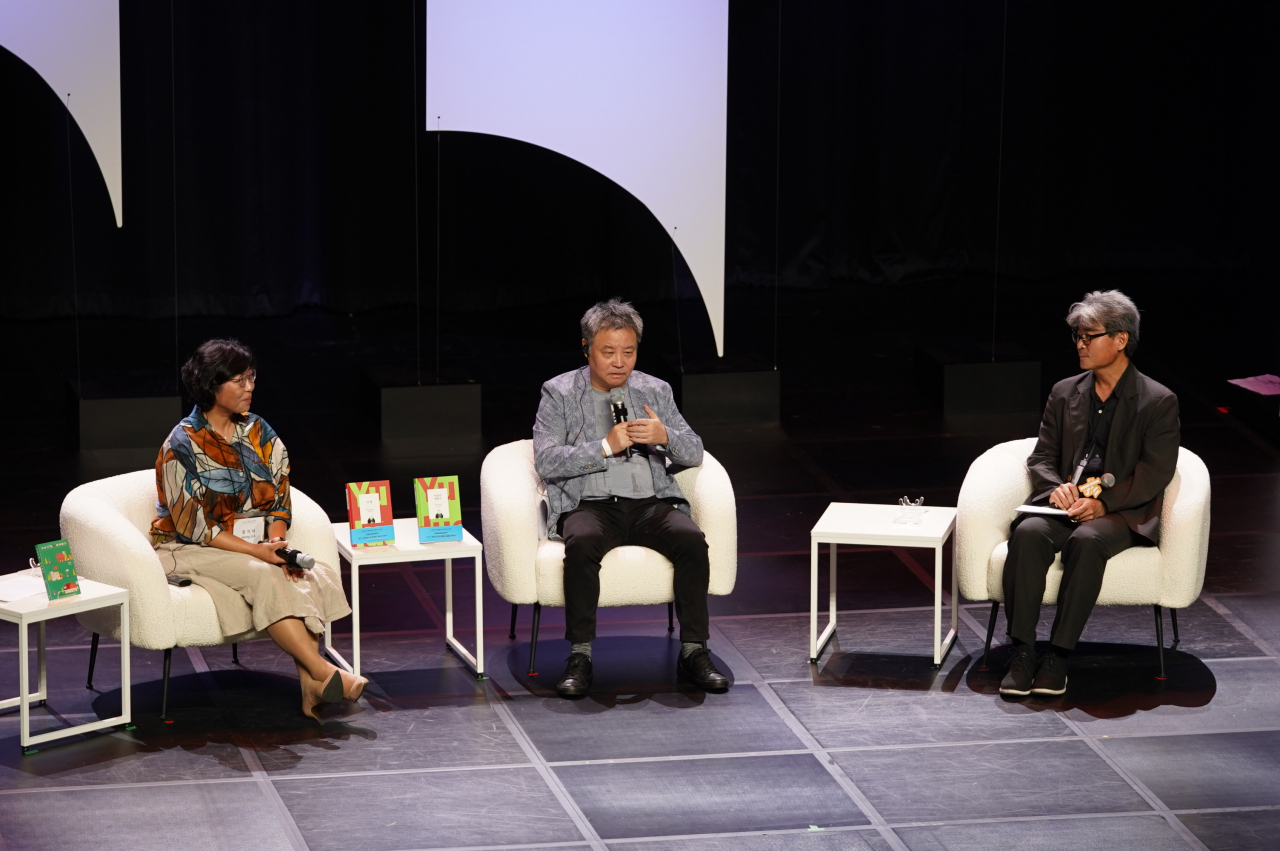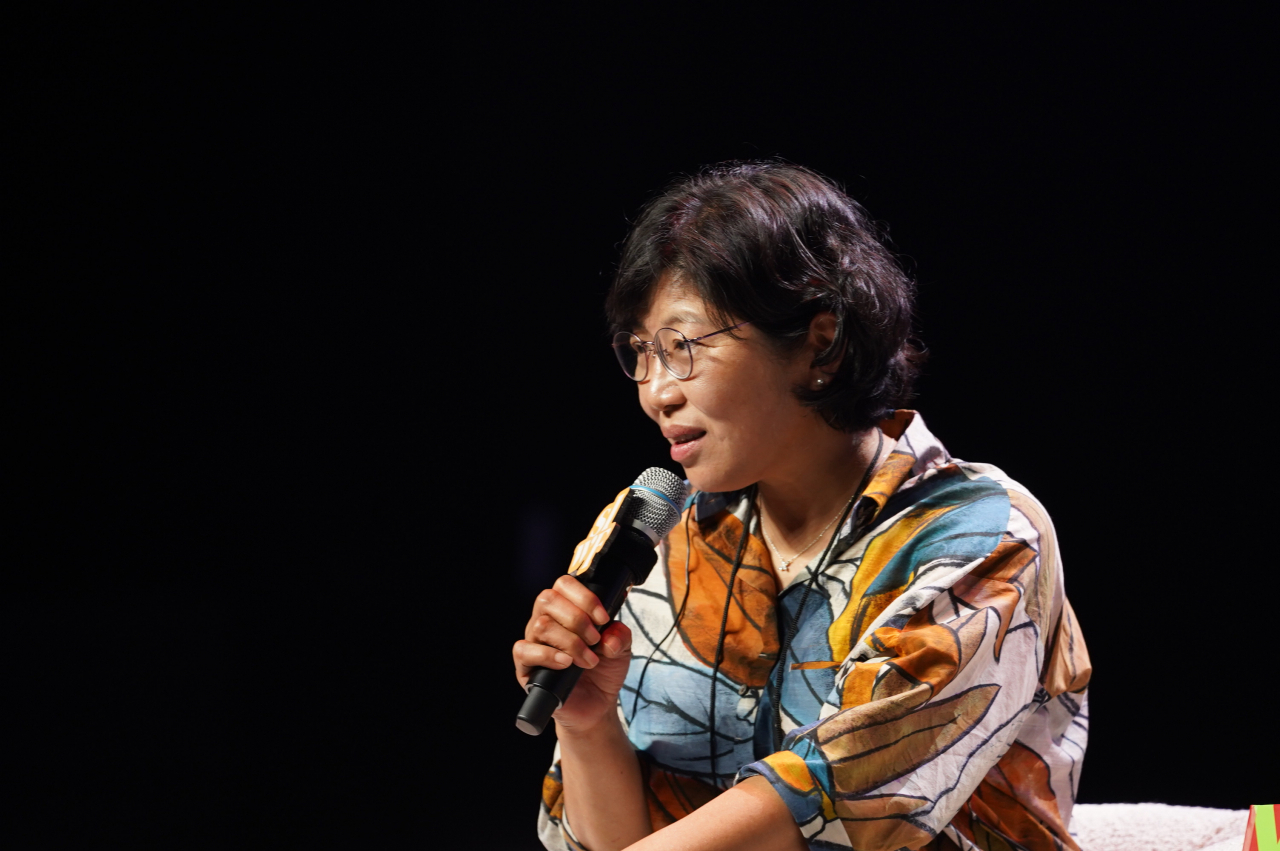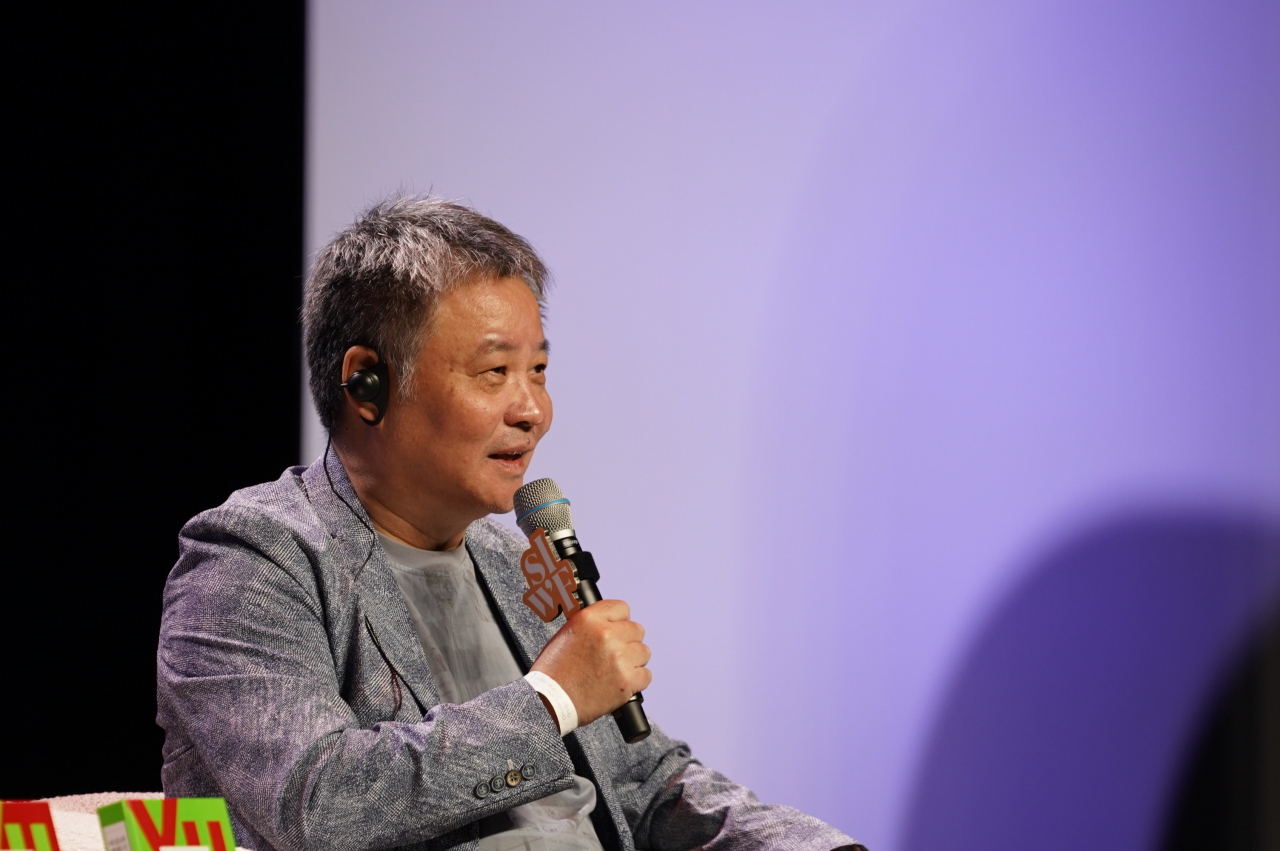Writers bring their literary worlds, imaginations to life on Nodeulseom
By Hwang Dong-heePublished : Sept. 14, 2023 - 16:27

The annual Seoul International Writers’ Festival, organized by the Literature Translation Institute of Korea (LTI Korea) kicked off Sept. 8, bringing together 24 Korean and international writers on Nodeulseom, an artificial islet on the Han River in Seoul, for a six-day festival.
Under the theme of “Crossing the Bridge of Language,” the 2023 SIWF responded to the heightened sense of isolation and discord brought about by the pandemic.
Two captivating storytellers -- Jeong Ji-a from Korea and Yu Hua from China -- delivered opening speeches filled with humor, which were met with hearty laughter from the audience.

Jeong, known for her bestselling novel, “Father’s Liberation Diary” (2022), which portrays the death of a partisan father with lightheartedness and humor, received positive reviews for reconciling characters from different generations and ideologies, making it one of the bestsellers that year.
"It hasn't been long since I started receiving this kind of attention,” Jeong said cheerfully. “(Yu) has sold over 30 million copies, and here I am at the festival with just 300,000 copies."
She then addressed the prevailing disconnections in Korea today, which include class divisions, breakdowns in communication between generations, progressives and conservatives, women and men, heterosexuals and homosexuals, and even among teachers, students and parents.
"People are isolated on their own islands," she said. "The only way to bridge these gaps is to build connections, and I believe literature can do just that."
Jeong shared her literary journey and how growing up as the daughter of a socialist led her to literature.
"One day, I realized that the Communist Party that needed to be overthrown -- as I was taught -- was my own parents. Since then, the question of what ideology is has been a central theme in my literature. In fact, that very question led me to literature."
She went on to describe her life in a small town with a population of 25,000, where she lives with her elderly mother.
"In such a close-knit community, people ‘truly’ know each other. Language isn't just a matter of words; it requires attention, affection and understanding, with true meaning existing beneath the surface. Likewise, I think the language of literature embodies that depth."

Yu Hua on catching up with opera
A prominent literary figure in Chinese literature, Yu, who wrote “To Live” and "Chronicle of a Blood Merchant,” also shared his experience of “crossing the bridge of language” in overcoming his aversion to watching classic operas, which highlighted the importance of translation.
“At first, I didn’t find Western opera enjoyable because I couldn’t understand the lyrics. The only part of opera I occasionally listened to was the overture because it had no lyrics. So for me, opera always felt fragmented,” Yu said.
He recounted his first full opera experience in Torino, Italy, during a literary event in 1998.
“It was painful. I couldn’t understand anything they were singing. I just glanced sideways and clapped when others did,” Yu said, adding that the plush red velvet chair was so comfortable that his eyelids grew heavy. He left during intermission.
He described his second encounter with opera -- or rather, his avoidance, nearly a decade later. He had a chance to see Wagner's "The Ring of the Nibelung" in Germany. He studied the lyrics but gave up after reading online reviews that “the uncomfortable seats squeaked with the slightest movement.”
“I was in pain with the red velvet chair, but a stool?” The audience couldn’t help laughing.
Perhaps the third time was the charm. Yu attended a performance of Verdi's opera "La Traviata" in China, invited by his music director friend. Because it was performed in China, there were subtitles translated into Chinese.
“I was completely immersed in the story. Each note was impressive, and the lyrics touched my heart,” he said. “Now I go to see operas every time they are performed (at the National Theater of China).”
Yu concluded his speech by saying that, while translation helps bridge the gap, it also allows us to appreciate new things and differences. "Both empathy and differences are equally important," he said.
The conversation was moderated by literary critic Son Jeong-soo, and simultaneous interpretation was provided.
All conversations with participating writers will be edited by the Literature Translation Institute of Korea and released via its official YouTube channel.




















